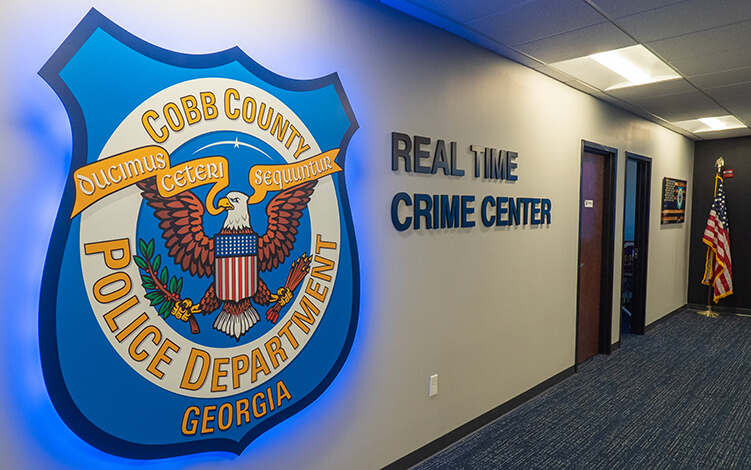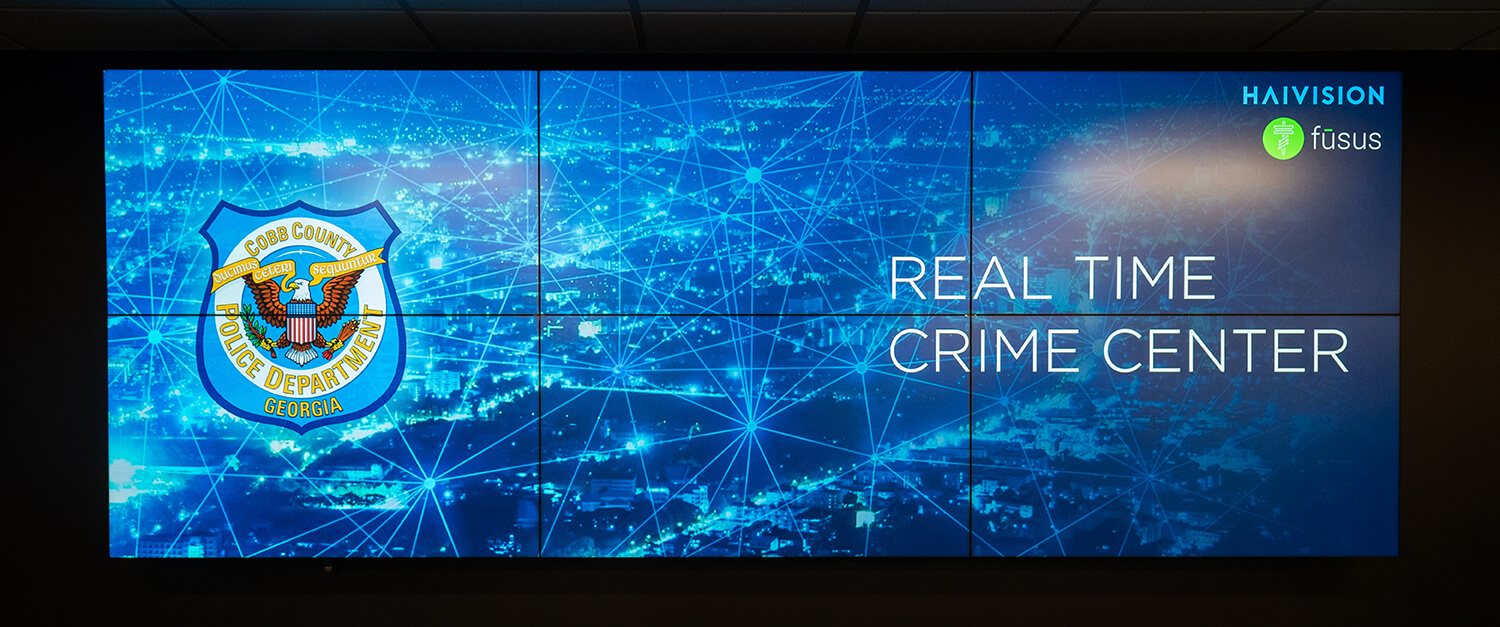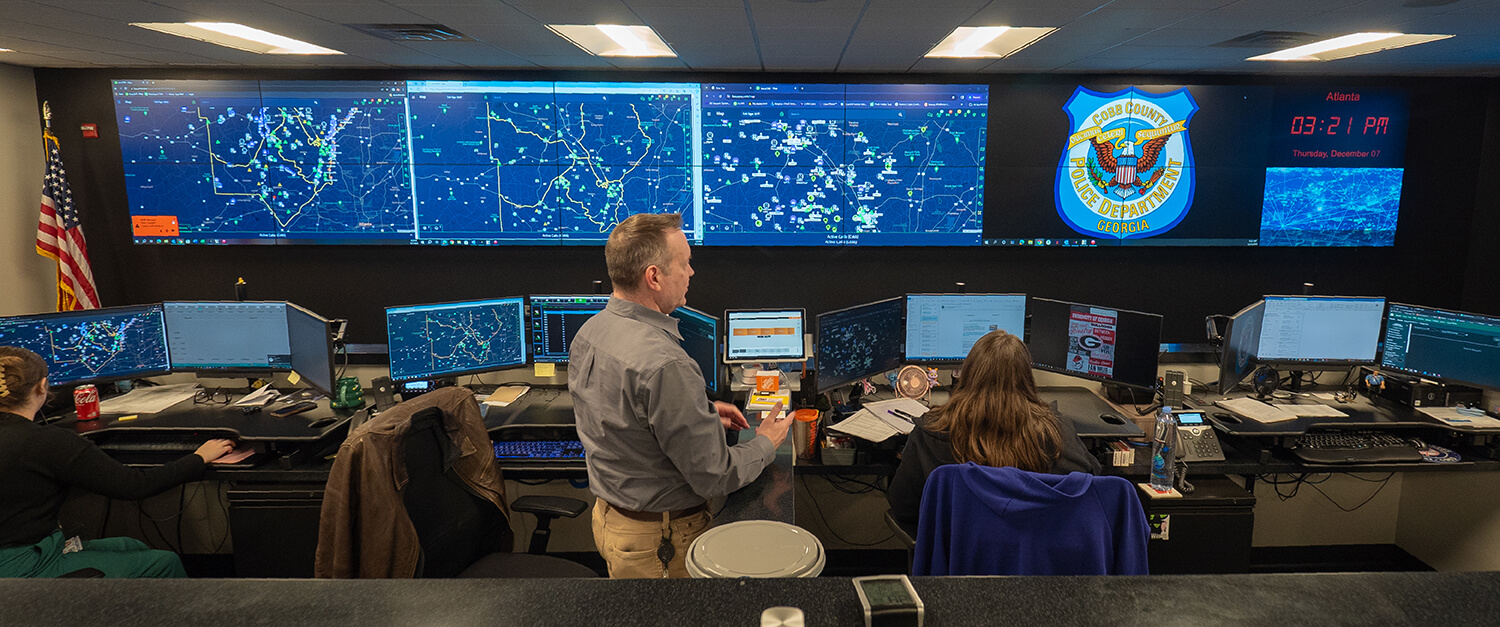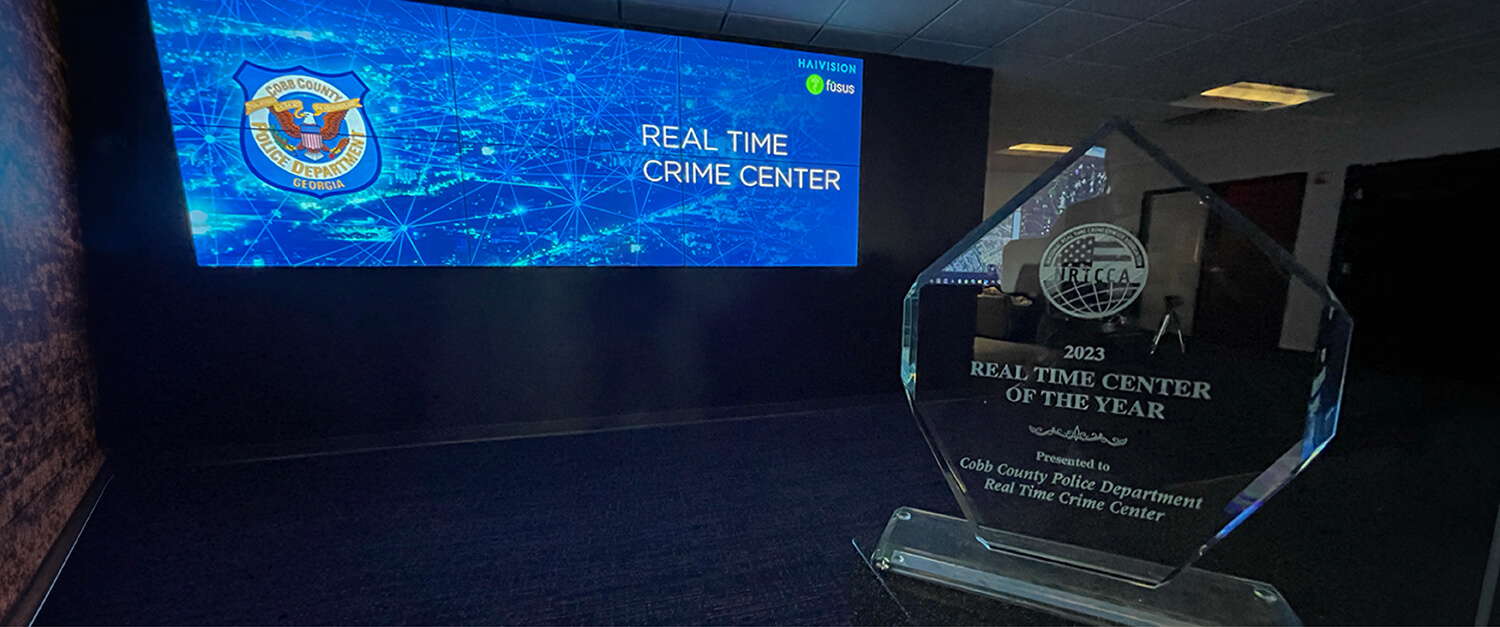How Haivision Helped Cobb County Transform its Real-Time Crime Center
Just outside of Atlanta, Georgia, lies the Cobb County Police Department and Cobb County’s RTCC, which serves as a central hub for information that plays a pivotal role in the department’s real-time decision-making. Cobb County itself boasts a vibrant community with several key highlights, including being the home of the Atlanta Braves, hosting Fortune 500 companies like Home Depot and Comcast, and the Dobbins Air Reserve Base. Moreover, it’s home to the second-largest university in Georgia.
Darin Hull
Captain of Special Response and Technologies,
Cobb County Police Department


The journey of implementing Haivision video wall technology in Cobb County’s Real-Time Crime Center (RTCC) began with a year and a half of conceptualization, planning, and collaboration with vendors and public safety partners. RTCCs are a constantly evolving space; every organization starts with different needs and budgets, making every project we embark on interesting, and Cobb County’s RTCC was no different.

The physical layout of Cobb County’s RTCC was designed to support scaling mission parameters depending on the level of response. The first row of positions (consoles) consists of sworn and civilian analyst responsible for filtering and prioritizing incoming information across disparate systems. Behind the analysts is a second row consisting of a raised platform and additional workstations should the need arise during larger events. The increased height allows commanding officers and decision makers to enter the RTCC without impeding analyst workflow by providing them with an eagle’s eye view of current information.
Haivision was selected due to its established presence in the emergency management agency and pre-existing partnerships that provided a known and trusted solution, as well as compatibility with Cobb County’s existing infrastructure and its ability to aggregate the precision policing tools they rely on. The content on the video wall is dynamic, including local news networks, Flock License Plate Readers (LPRs), and Fusus. Flock LPRs are particularly valuable for tracking vehicles on a custom hot list or identifying stolen vehicles. According to David Thorp, Lieutenant at the department’s Real-Time Crime Center, “We typically dedicate at least one section of the video wall for Flock displays. For instance, if we have an alert on a wanted person or a custom hot list on a vehicle we’re looking for or a stolen vehicle, that vehicle is on static display for everybody to see as a valuable reference point.”

Cobb County’s RTCC prioritizes event management, ensuring that commanders and incident management teams have comprehensive views to enhance situational awareness. According to Darin Hull, the Captain of Special Response and Technologies: “In our operations, we encounter situations where the incident commander not only manages phone calls and handles their tasks but also requires rapid access to essential information. Our RTCC’s video wall technology enables them to request specific information to be displayed.”
Regionalization with neighboring law enforcement agencies fosters collaboration and interagency partnerships, enabling the efficient sharing of resources and intelligence. This collaboration with six different agencies within the county has set a precedent for multiagency, regional approaches. Darin Hull explains: “RTCCs can be expensive, and many police departments wouldn’t be able to afford them independently. If we can combine resources, both in terms of staff and technology, we can achieve communication and intelligence sharing like never before.”
Cpt. Hull highlights the RTCC’s ability to address staffing shortages, as well: “By using an approach that incorporates non-sworn positions, we were able to drive the mission forward without drawing from our pool of sworn staff. The analysts can supply information to the officers and our decentralized real-time crime center, with the Fusus platform, allows us to put the real-time crime center in the hands of officers and detectives.”
The RTCC contributes to enhanced safety for both civilians and officers by providing live streams from body cameras and dash cameras, along with virtual backup capabilities that add an extra layer of protection. Cpt. Hull explains, “We find that sometimes officers, when responding to a call, will not be responsive to communication and, instead of sending backup right away, other officers can verify the responding officers’ safety by accessing body cam footage. Oftentimes, the officer is in conversation with civilians on the scene and, therefore, aren’t in need of backup. In this way, the RTCC software minimizes unnecessary calls and keeps more officers available for other incidents.”
Community engagement is another key outcome. The RTCC bridges the gap between law enforcement technology and public perception by conducting community tours and educating various stakeholders, promoting transparency, and shaping the community’s understanding of policing. Lt. Thorp emphasizes the importance of tours, saying, “The ROI of tours and the value of community policing are significant. Involvement of the community helps to shape their understanding of policing and rewrite outdated narratives about RTCC technology.”
Not least of all, the RTCC has proven to lead to accelerated suspect identification, apprehension, and case resolution, all while ensuring that the right individuals are targeted for prosecution.
When it comes to partnerships, not all partners are created equally. Finding the right fit for your needs is crucial and can be the difference between future-proofing your build and having to start the process all over again in a few years. Every command center has different needs.
“Haivision has been a great partner, providing us with an intuitive solution that maximizes our potential, safeguarding our community and officers, which is especially crucial amid staffing shortages,” said Captain Darin Hull.
“Haivision’s video wall technology has been an indispensable asset in our RTCC, seamlessly integrating real-time information that not only amplifies our team’s capabilities but significantly elevates our efficiency and safety. It’s not just about the technology; it’s about optimizing our ability to enhance precision policing techniques,” Lt. Thorp shared.
By embracing technology and fostering collaboration, Cobb County PD has elevated public safety and community engagement. This journey serves as an inspirational example for other law enforcement agencies, but both Captain Hull and Lt. Thorp, on behalf of their team, reiterate the importance of pacing themselves and having a clear roadmap. An incremental approach and a commitment to “fail forward” are key takeaways. A great resource for those building or improving upon their RTCC includes the NRTCCA, an organization dedicated to identifying and promoting public safety best practices.
Ultimately, the road to an effective RTCC is an ongoing journey, not a destination, underpinned by partnership, learning from others, and a relentless commitment to improving public safety and community engagement.
Webinar – 2023 National Homeland Security Conference Panel Discussion
Blog Post – Lessons Learned in Building Real-Time Crime Centers